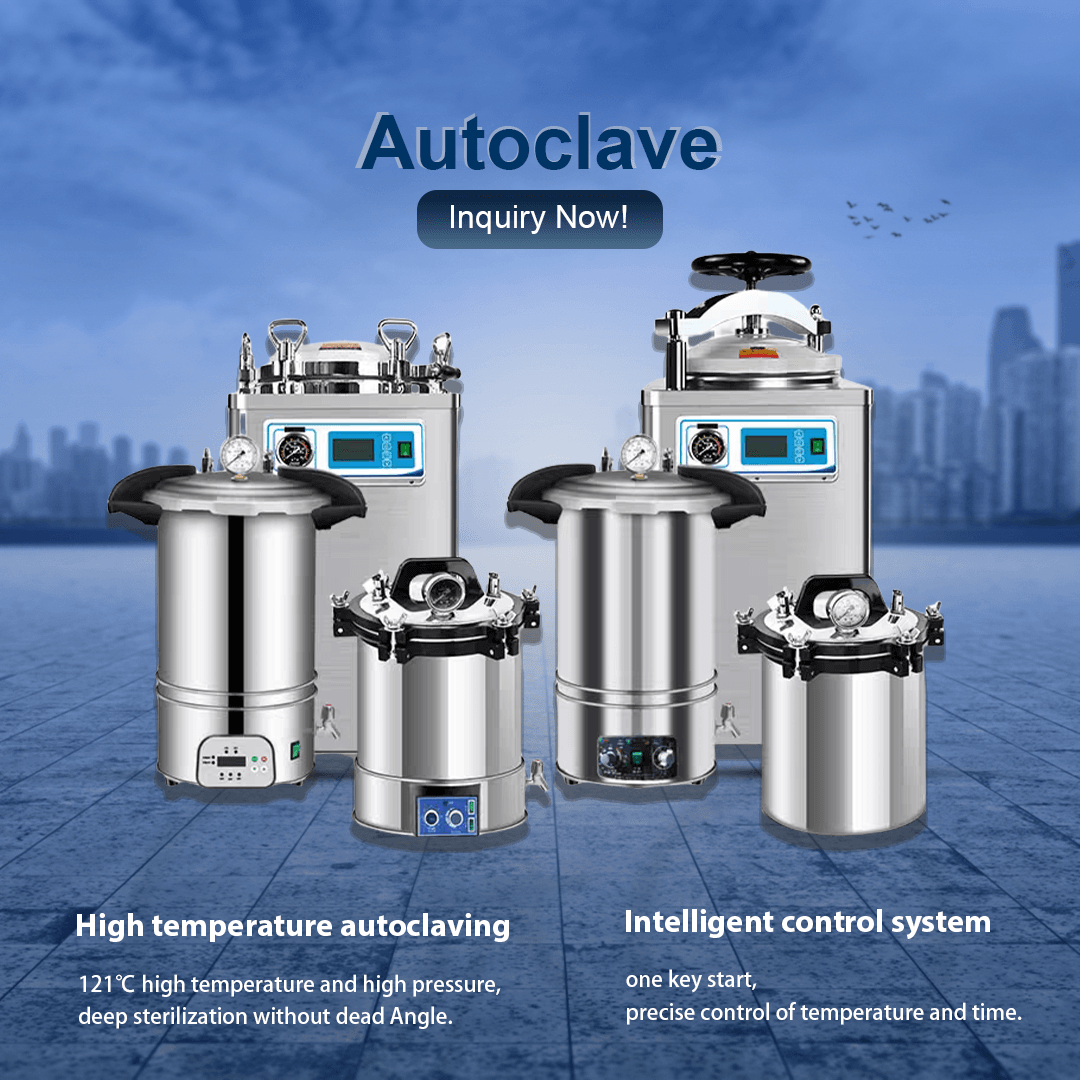
This guide provides comprehensive information about autoclaves for dental clinics covering their importance and types as well as features that should be evaluated when selecting the best autoclave for your practice.
An autoclave functions as a steam sterilizer that eliminates contaminants from medical tools through high-pressure saturated steam and holds essential importance for dental clinic operations. **
The autoclave which functions as a steam sterilizer employs high-pressure saturated steam to sterilize medical instruments. Dental clinics require mandatory sterilization because instruments make direct contact with patients’ mouths.
Autoclaves prove to be essential tools for dental clinics because they ensure proper instrument sterilization.
Dental clinics are obligated to follow rigorous sterilization protocols to maintain safe and hygienic conditions.
Sterilization procedures eliminate bacteria, viruses, and spores which stops infections from spreading.
Maintaining a clean and sterile environment builds patient trust and boosts your clinic’s reputation.
The appropriate autoclave selection for a dental clinic requires evaluation of clinic size alongside instrument sterilization volume and operational requirements.
Class B Autoclaves
Most commonly used in dental clinics.
The Class B Autoclaves contain a vacuum pump feature to remove air before and after sterilization processes.
This device effectively sterilizes instruments that are wrapped as well as those with hollow and solid structures.
Class N Autoclaves
Designed for sterilizing unwrapped solid instruments.
Class N Autoclaves match the needs of small dental clinics that require sterilization capacity with limited volume.
Class S Autoclaves
This autoclave represents a versatile solution that operates between Class B and Class N functionality.
The capability to process wrapped and hollow instruments depends on the specific model.
Important features to evaluate when choosing a dental autoclave include
The following features should guide your choice when choosing an autoclave for a dental clinic.
Chamber Size
The autoclave chamber must provide adequate space for the clinic’s daily sterilization requirements.
Larger chambers are ideal for high-volume clinics.
Cycle Time
Efficiency levels rise when cycle times accelerate in high-traffic clinics.
Ease of Use
Choose autoclaves that feature intuitive interfaces and automated cycle functions.
Compliance Certifications
The autoclave should comply with international sterilization standards including CE, ISO, or FDA certifications.
Maintenance and Durability
Opt for autoclave models which require minimal maintenance and feature robust materials to guarantee extended usage duration.
Energy Efficiency
Autoclaves with high energy efficiency deliver cost savings over time.
Business buyers should follow a strategic approach to select the optimal autoclave that matches their operational needs.
The process of selecting an autoclave demands distributors, suppliers, and buyers to weigh quality against cost and functionality. Here are some tips:
Understand Your Target Market
Evaluate the operational requirements of the dental clinics you distribute products to. Do your dental clients operate as small private practices or larger clinic facilities?
Compare Pricing and Features
Compare various models and brands to determine which one provides the greatest value for money.
Check Warranty and Support
Customer satisfaction depends heavily on dependable after-sales assistance and warranty agreements.
Consider Bulk Orders
As a distributor you should request bulk purchase discounts to improve your profit margins.
Autoclaves of superior quality lead to less operational downtime and boost productivity levels.
Superior sterilization methods lead to superior compliance with medical standards.
Over time durable and energy-efficient models result in financial savings for users.
Choosing the correct autoclave for dental clinics plays a crucial role in maintaining patient safety and proper hygiene. Knowledge about autoclave types, features, and advantages empowers distributors, suppliers, and buyers to choose products that fulfill their business requirements.
We can assist you in choosing the superior autoclave options for your dental clinic customers. Reach out to us now to gain professional guidance while exploring competitive price options.
Class B autoclaves are the most advanced and can sterilize all types of instruments, including wrapped and hollow items. Class N is suitable for unwrapped solid instruments, while Class S offers a middle ground with limited capabilities for wrapped and hollow items.
Regular maintenance is crucial for optimal performance. Most manufacturers recommend servicing every 6-12 months, depending on usage.
Class N autoclaves are suitable for small clinics with minimal sterilization needs. However, for comprehensive sterilization, Class B autoclaves are recommended.
Look for certifications such as CE, ISO, or FDA approval to ensure the autoclave complies with global sterilization standards.
With proper maintenance, a high-quality autoclave can last 5-10 years or more.
For more information or to place an order, contact Keling Medical today:
Email: inquiry@shkeling.com
WhatsApp: +8618221822482
Website: https://autoclaveequipment.com/
Let us help you find the perfect autoclave solution for your dental clinic clients!

Healthcare and related industries depend on sterilization to protect patients and professionals through the destruction of harmful microorganisms. Medical equipment distributors, dealers, and procurement specialists must understand the tools used

Healthcare and its related fields must maintain sterilization standards to protect against infections and ensure safety. Medical equipment distributors, dealers and procurement specialists must know which tools produce sterility to

Medical equipment distributors, dealers, and procurement specialists must focus on sterilization because it serves as the foundation of safety and infection prevention in healthcare. The autoclave is an essential sterilization

Healthcare providers must uphold strict sterility standards to protect patients from infections and ensure their safety. Medical equipment distributors and procurement specialists need to understand sterilization tools to serve hospitals

The healthcare industry gives top priority to maintaining sterile medical instruments and equipment because it protects patient health and prevents infections. Sterilization tool functionality knowledge is vital for medical equipment

Healthcare facilities must prioritize sterilization of instruments and equipment to protect patients and prevent infectious diseases. Medical equipment distributors, dealers, and procurement specialists must understand critical sterilization tools to satisfy